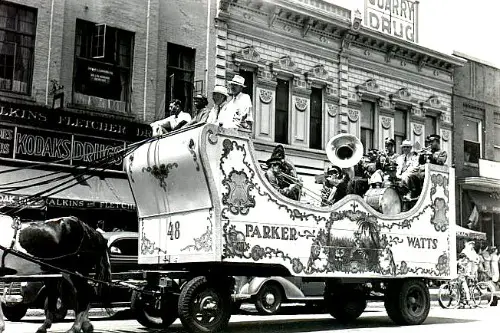1. “Spill the beans.”

“Spill the beans” is a phrase that doesn’t have anything to do with food or clumsiness, even though it might initially sound like a kitchen disaster. Instead, it refers to accidentally revealing a secret or disclosing confidential information. The origins of this idiom can be traced back to ancient Greece. In those times, beans were used in voting ceremonies. People would place beans in a container to cast their vote, and if someone “spilled the beans,” the secret ballots would be exposed, rendering the voting process invalid. This simple act of spilling became associated with accidentally giving away a hidden truth or secret.
Although the phrase originates from a practical, historical event, its modern meaning is widely understood. In today’s world, if someone “spills the beans,” they’ve inadvertently revealed information that was supposed to remain confidential, often in a situation where secrecy was crucial. Whether it’s a workplace rumor or a personal secret, to “spill the beans” means to let something slip—often in a way that causes trouble for the person who made the mistake. The vividness of the expression, with its association to spilling something valuable or hidden, adds an interesting layer to the concept of a “slip-up” or an unintended reveal.
2. “Break a leg.”

At first glance, the phrase “break a leg” might seem odd, especially when used to wish someone good luck. After all, the idea of wanting someone to suffer a serious injury doesn’t exactly fit with positive intentions. However, this idiom has its roots in theatrical superstition. In the world of performance, it was once considered bad luck to wish an actor or performer “good luck” directly. To avoid invoking the curse of bad luck, theater folk would use the phrase “break a leg” as a reverse psychology way of wishing well without tempting fate.
The superstition can be traced back to a variety of possible origins, but one popular explanation is that it relates to the tradition of bowing after a performance. In older times, actors would bow so low after a successful performance that they might “break a leg” in the process. Over time, the phrase became a common expression of encouragement in the theater world. Now, when someone says “break a leg,” they’re actually wishing success and good fortune. The phrase remains a fascinating example of how superstition and language can shape everyday expressions, making it a quintessential piece of theater lore.
3. “Burning the midnight oil.”

The phrase “burning the midnight oil” brings to mind a bygone era before electric lights, where oil lamps were the only source of illumination after sundown. To “burn the midnight oil” means to stay up late working on a task, often for the purpose of meeting a deadline or finishing a project. This idiom’s origin comes from the time when people would literally burn oil in lamps to light their way through the night. If someone was working late, they were burning the oil in their lamp, a practice that was both a necessity and a symbol of dedication to the task at hand.
The phrase is often associated with scholarly work, such as writing or studying late into the night. It conjures images of writers, researchers, and thinkers staying up late, their desks lit only by the soft glow of an oil lamp, deep in concentration. The idiom conveys both a sense of hard work and the sacrifice of sleep in the pursuit of a goal. However, in modern times, it often has a negative connotation, as staying up too late to work can lead to exhaustion or burnout. Despite this, “burning the midnight oil” remains a colorful and evocative expression to describe those who push themselves beyond the usual limits to complete a task, no matter how tiring the effort may be.
4. “Let the cat out of the bag.”

“Let the cat out of the bag” is another one of those idioms that sounds like it could be something entirely different. This saying means to accidentally reveal a secret or piece of information that was meant to stay hidden. The phrase is thought to have originated in medieval markets, where vendors would sell live pigs in bags. Some dishonest vendors would substitute the pig with a less valuable cat. If someone let the cat out of the bag, the scam would be exposed, and the secret would be revealed.
The phrase has since evolved into a general expression for revealing any kind of secret, not just scams. Whether it’s a surprise party, a confidential company decision, or an undisclosed piece of gossip, if someone “lets the cat out of the bag,” they’ve unintentionally made information public. The phrase’s imagery of something unexpected coming out of a bag helps to emphasize the element of surprise or unintentional revelation. Though it may sound odd to someone unfamiliar with the historical context, it serves as a vivid reminder of how secrets, once revealed, are hard to conceal again.
5. “Costs an arm and a leg.”

“Costs an arm and a leg” is a common idiom used to describe something that is very expensive. While the phrase is often used in a hyperbolic sense, its origins may come from 18th-century portrait painters. It is believed that these painters charged extra fees for including detailed limbs in their artwork. The more intricate the limbs (arms and legs), the higher the price of the portrait. While this story may be more myth than fact, it’s one of the more popular explanations for the phrase’s origin.
The expression is dramatic in nature, helping to convey just how expensive something is by referencing the high cost of body parts, something that is clearly irreplaceable. Whether it’s a luxury car, a dream vacation, or an extravagant piece of jewelry, if something “costs an arm and a leg,” it’s probably beyond the average person’s budget. This idiom is also often used to express the difficulty of affording something or the sacrifice required to attain it, underscoring the value of the object in question. Although it might seem somewhat macabre to outsiders, it’s an effective way to describe any expense that feels steep or unreasonable.
6. “Kick the bucket.”

“Kicking the bucket” is a well-known euphemism for dying, but its meaning is often met with confusion or even discomfort, especially for non-native English speakers. The origins of this phrase are thought to come from an old method of slaughtering animals. In the past, when animals were hung upside down for slaughter, they would often kick at a bucket that was placed underneath them to catch the blood. This violent movement of the legs during the final moments of the animal’s life became associated with death itself, eventually evolving into a metaphor for human death.
While “kick the bucket” is generally used in a casual, almost humorous manner, the concept behind it can feel jarring to those unfamiliar with its historical roots. It’s a way to address death without using more direct or heavy language, making it a less morbid way of discussing the inevitable. However, to outsiders who aren’t familiar with the agricultural context, this phrase might seem odd or unnecessarily flippant, especially when discussing something as serious as death. Still, it remains a common expression used in both everyday language and media, often with a mix of humor and lightheartedness.
7. “Hit the nail on the head.”

To “hit the nail on the head” means to be absolutely correct or precise about something. This phrase has its roots in carpentry, where a hammer strike that lands directly on the nail’s head is both the most effective and the most accurate way to drive it into place. Just as a misdirected strike would ruin the task, a correct one ensures success. The idiom, therefore, emphasizes precision and correctness in understanding or action.
When someone “hits the nail on the head,” they’ve made a statement or observation that is perfectly accurate or well-executed. This could be in response to a problem, a discussion, or a specific situation. The vividness of the imagery helps make the point clear: it’s not enough to be close or somewhat right; to truly succeed, you must be exact. Although it’s rooted in carpentry, the phrase has become widely used outside of construction, making it a versatile way to compliment someone’s accurate insight or action in virtually any field or context.
8. “Throw someone under the bus.”

“Throw someone under the bus” is a dramatic idiom used to describe the act of betraying someone or sacrificing them for personal gain. It’s often associated with situations where someone shifts blame onto another person to protect themselves or advance their own interests. While the imagery is quite violent and stark, the meaning behind it is clear: the person being “thrown under the bus” is put in a vulnerable or dangerous position, often without warning or justification.
The origin of this idiom is unclear, though it likely emerged in the 20th century, possibly from the competitive dynamics of the workplace or political arenas. The phrase became particularly common in discussions about business or political scandals, where individuals might be quick to betray colleagues, friends, or allies in an attempt to avoid blame or gain an advantage. Although it’s a harsh metaphor, the saying is powerful in conveying the idea of ruthless self-preservation at the expense of others, making it a widely recognized expression in American slang.
9. “It’s a piece of cake.”

To say something is “a piece of cake” is to describe it as being incredibly easy or effortless. The phrase evokes the image of enjoying a simple, delicious slice of cake, something that requires little effort to consume. But how did this become a metaphor for simplicity? The exact origin of this saying is somewhat unclear, but one theory is that it stems from the 19th-century American cakewalk contests, where participants would dance around in a contest, and the winner would often receive a cake as a prize. The contests themselves were seen as easy to win, and thus, the prize became synonymous with ease.
This idiom has persisted over time because it conveys an uncomplicated, lighthearted view of completing a task. When someone says, “It’s a piece of cake,” they’re essentially saying that the task ahead will require little effort or skill. It’s a fun and approachable way to describe something that seems effortless, and it has become a standard part of American slang, commonly used in casual conversations. However, for non-native speakers, the connection between cake and ease might not be immediately apparent, which could make the phrase a bit puzzling at first.
10. “Bite the bullet.”

“Bite the bullet” is an idiom that means to endure something painful or unpleasant with courage and determination. The phrase is often used when someone has to face an uncomfortable situation, whether it’s a difficult task, a medical procedure, or an inevitable outcome. The origin of this saying is linked to the grim reality of battlefield medicine in the past, particularly during wartime. When soldiers required surgery, there were no anesthesia or painkillers available, so they would bite down on a bullet to distract themselves from the excruciating pain.
The phrase has since evolved beyond its historical context and is now used to encourage people to face unpleasant tasks head-on. Whether it’s going through a difficult breakup, confronting an issue at work, or dealing with a health concern, to “bite the bullet” means to take action, even if the situation is painful or difficult. The image of the soldier biting a bullet provides a powerful metaphor for enduring hardship, making this idiom both poignant and memorable. While it may sound violent or harsh, its usage in modern language is generally meant to inspire perseverance and resilience.
11. “Raining cats and dogs.”

When someone says it’s “raining cats and dogs,” they don’t mean actual pets are falling from the sky. This colorful idiom simply refers to heavy rain. While the origin of this phrase is debated, one theory ties it to 17th-century England, where it was believed that during fierce storms, dead animals such as cats and dogs would be washed into the streets. Whether this is true or not is uncertain, but it’s an image that has stuck in the public imagination and is now used to describe any particularly torrential downpour.
The phrase itself is vivid and slightly absurd, which is part of its charm. The combination of cats and dogs, two animals that often symbolize chaos and disorder in their own right, adds to the exaggerated sense of mayhem that heavy rain can bring. For anyone unfamiliar with this saying, it can seem puzzling at first, but the comparison to an overwhelming storm makes the expression both memorable and dramatic. So, the next time you find yourself caught in a downpour, you might find yourself saying it’s “raining cats and dogs” to emphasize just how intense the rain is.
12. “Chew the fat.”

“Chew the fat” is an idiomatic expression that refers to having a casual, informal conversation. While the phrase might sound a bit strange—especially when considering the literal meaning—it actually has historical roots tied to sailors. During long voyages, sailors would chew on tough, fatty pieces of meat to pass the time and alleviate boredom. These lengthy conversations often accompanied the chewing process, leading to the connection between casual talk and the act of chewing.
In modern usage, “chew the fat” doesn’t have anything to do with food but rather signifies spending time chatting or gossiping in a relaxed manner. It’s often used to describe those easy, leisurely conversations where the topic is anything and everything, with no particular urgency or depth required. For non-Americans, the connection between chewing something tough and engaging in a friendly chat might seem odd, but it’s a quirky way to express the act of socializing. If you’ve ever enjoyed a casual conversation with friends or family, you’ve probably “chewed the fat” without even realizing it.
13. “Under the weather.”

To be “under the weather” is to feel ill or unwell. This phrase is believed to have originated from maritime traditions. Sailors, when they became seasick, would go below deck to avoid the harsh weather and ride out their sickness in a quieter, more comfortable space. Thus, being “under the weather” became a way to describe someone who was feeling ill, particularly from something like a cold or flu.
Today, the phrase is used far beyond the nautical world and is a polite or indirect way of saying someone isn’t feeling well. Whether you’re nursing a minor cold or dealing with something more serious, saying you’re “under the weather” allows you to explain your condition without getting too specific. It’s a more poetic way to express sickness, adding a bit of charm to a simple declaration of poor health. The image of being sheltered from the elements below deck helps convey the sense of retreating from illness or discomfort.
14. “The ball is in your court.”

“The ball is in your court” is an idiomatic expression derived from sports, particularly tennis. It means that the responsibility for a decision or action now lies with you. The image comes from the game of tennis, where the ball is hit back and forth between players, and it’s the responsibility of the person who has the ball in their side of the court to return it. So, if someone says “the ball is in your court,” they are essentially telling you that it’s your turn to make a move or take action in a situation.
The phrase emphasizes the idea of personal responsibility and control. It’s often used in conversations where a decision or outcome hinges on the actions of the individual being addressed. Whether it’s a negotiation, a personal decision, or a workplace situation, “the ball is in your court” suggests that the next step is yours to decide. For those unfamiliar with tennis, this metaphor could be confusing, but once understood, it’s a clear and effective way of conveying the idea of taking ownership of a situation.
15. “Jump on the bandwagon.”

To “jump on the bandwagon” means to join a trend, activity, or movement that’s already popular, often with the implication that you’re doing it for superficial reasons or simply to fit in. The phrase originated in 19th-century American politics. During presidential campaigns, politicians would often use literal “bandwagons” — decorated wagons that carried supporters during parades — to attract attention and rally support. The bandwagon would roll through town, and people would jump on, quite literally, to show their allegiance to a candidate or cause.
In modern usage, “jumping on the bandwagon” typically implies following a trend or hopping on the latest fad. Whether it’s a new diet craze, the latest fashion, or a viral social media challenge, someone who “jumps on the bandwagon” is often seen as doing so not out of genuine interest but because it’s popular or socially acceptable at the moment. For those unfamiliar with 19th-century American political traditions, the phrase might seem puzzling, but its meaning is clear: it’s about following the crowd. The expression highlights the human tendency to gravitate toward what’s popular, whether for personal gain, social acceptance, or simply because everyone else is doing it.
America’s love for idioms is part of what makes its culture unique, but for outsiders, these sayings can feel like a riddle wrapped in a mystery. Next time you use one, consider the puzzled faces around you—they’re probably trying to figure out what cats, beans, or buses have to do with anything!


